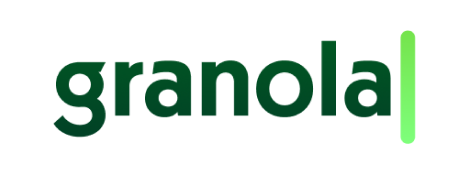A new era of connectivity at McLeod Cranes

Established in 1995, McLeod Cranes began as a family-run crane, hiab and transport company in New Zealand’s Bay of Plenty and Waikato regions.
Initially reliant on a patchwork of communication tools including WhatsApp, Facebook, Google Chat, email and phone calls, the company found it hard to maintain effective communication between dispatchers and crane operators.
Scott McLeod, McLeod Cranes’ managing director, had little idea that attending Dreamforce in 2023 would introduce a tool that would become the operational backbone of McLeod Cranes.
“We’ve been using Salesforce for two and a half years for the contacts and accounts side of it. And around November last year, we started using Slack after Dreamforce.” says McLeod.
At first, Scott McLeod viewed Slack as just another messaging platform. But it quickly became much more than that. Within days, it completely changed the way McLeod Cranes did business and became its central hub for work—the “glue” that helps everyone at McLeod Cranes stay connected.
“We wiped out every other communication tool and we ended up with Slack,” says McLeod.
Overhauling manual processes with real-time site updates
Site inspections are a crucial part of operations at McLeod Cranes, involving detailed checks to ensure safety before deploying heavy machinery.
Before Slack came into the picture, site inspections at McLeod Cranes were a logistical headache, filled with too many phone calls and emails. They were time-consuming and prone to errors.
Thanks to Slack, what used to be a chore is now a straightforward task. Site inspectors share real-time videos and photos with dispatch in project-specific Slack channels, keeping all site information in one place.
“Site inspections using Slack are amazing because they inform the team what to do and what hazards will be on site,” says McLeod.
This new process saves time and enhances the quality of each inspection. Inspections that used to take dispatchers between 5 to 10 minutes to communicate now wrap up in just 60 seconds.
But it’s not just about being quicker—it’s about getting it right from the start. With more accurate initial inspections, the team has cut down significantly on follow-up checks, which used to take an extra hour each time.
Making work safer with Slack and AI
A central aspect of McLeod Cranes’ commitment to safety is the rapid communication of incidents and safety alerts through Slack. Improved communication has resulted in a notable increase in productivity and a decrease in workplace incidents.
When incidents occur, the details are quickly shared in a Slack channel. This makes sure that the right people know what’s going on without delay.
To make this process even better, McLeod Cranes introduced a “no blame” reporting system that uses a Slack automation and AI integration to encourage operators to report incidents. The generated report informs everyone about what happened and clearly outlines what should be done next to keep the team safe.
This transparent and proactive approach to health and safety boosts confidence among employees. “Having the ability to view information through Slack gives me the confidence to do my job safely and efficiently,” says Rob Curtis, a Hiab Operator at McLeod Cranes.

“Having the ability to view information through Slack gives me the confidence to do my job safely and efficiently.”
Modernising asset maintenance with Slack integrations
Slack has also changed how McLeod Cranes manages and maintains its extensive array of heavy machinery. With Slack’s low-code and no-code capabilities, it only took Scott McLeod a few hours to set up a system that provides real-time, asset-specific updates in dedicated Slack channels.
“In just 2 to 3 hours, we integrated our maintenance management system into Slack. Now, we have channels for each asset,” says McLeod.

“In just 2 to 3 hours, we integrated our maintenance management system into Slack. Now, we have channels for each asset.”
Slack integrations have sped up maintenance processes, ensuring that all departments are consistently informed and coordinated. Immediate access to maintenance schedules and updates means that preventative maintenance can be conducted on time.
“With Slack, we can implement everything into one and all departments can be involved,” says Chelsea Stewart, a dispatcher at McLeod Cranes.
Potential issues can be addressed before they escalate into costly downtime. And it’s not just about preventing problems. Slack integrations also made routine checks a breeze.
“Using Slack integrations for maintenance helps me track my own truck. It sends updates when services are needed,” says Curtis.
Lifting service quality and customer relations
At McLeod Cranes, the benefits of using Slack extend beyond internal efficiencies. With faster access to information, the team can now respond to customer needs with speed and accuracy.
“Now that we have Slack, we can spend more time with our customers. We’re able to create a better quality of work and a stronger team environment,” says Stewart.
More connectivity also means that issues can be addressed before they become problems, leading to a noticeable drop in customer complaints and higher overall satisfaction.
“Complaints are down. Productivity has increased and communication around jobs has increased,” says McLeod.














